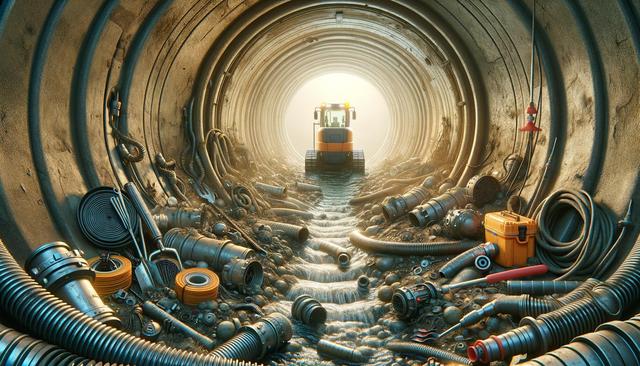What Causes Sewer Blockages?
Sewer lines are essential components of a home’s plumbing system, and when they clog, it can lead to serious complications. Among the most common causes of sewer blockages are the accumulation of grease, soap residue, hair, and foreign objects. Tree roots can also invade sewer lines through tiny cracks, growing over time and restricting water flow. In some cases, older pipes may collapse due to corrosion or shifting soil. Recognizing the signs early helps prevent larger, more costly problems down the line. If you notice that your home is draining more and more slowly, it might be time to investigate further.
Another often-overlooked contributor to sewer issues is improper disposal of materials. Flushing items like wet wipes, hygiene products, or paper towels—even those labeled as ‘flushable’—can gradually build up in your pipes. Over time, these materials can create a solid mass that prevents wastewater from flowing freely. When this happens, water may start backing up into sinks, tubs, or floor drains, producing foul smells and potential health hazards.
Warning Signs You Shouldn’t Ignore
Sewer problems don’t usually appear overnight. Instead, they tend to develop slowly, giving homeowners time to spot early indicators. For instance, is your home draining more and more slowly? Is there smelly water coming back from the floor drain? These may be early indicators of a potential sewer blockage that could require attention. Being aware of these symptoms can help you act quickly to avoid more severe damage.
Here are some common signs you might be dealing with a sewer issue:
- Gurgling sounds coming from toilets or drains
- Multiple drains clogging at once
- Water backing up in showers or bathtubs when flushing toilets
- Persistent foul odors around drains or in the basement
If you notice any of these signs, it’s a good idea to contact a professional plumber who can carry out a thorough inspection and cleaning.
Sewer Cleaning Methods
There are a variety of techniques used to clean sewer lines, each suited for different types of blockages. One of the most common methods is mechanical rodding, which involves inserting a flexible rod with a cutting tool into the pipe to break up clogs. Another widely used method is hydro jetting, where high-pressure water is blasted through the lines to clear debris, grease, and even tree roots.
Here are some of the tools and methods professionals may use:
- Motorized drain augers (also called plumber’s snakes)
- Video inspection tools to identify the exact location of the blockage
- Hydro jetting systems for thorough cleaning
- Pipe relining or replacement for damaged or collapsed pipes
Each method has its own advantages and limitations, and a professional will assess the situation before deciding on the most appropriate approach.
Preventive Maintenance Tips
Routine maintenance is key to avoiding future sewer problems. Simple habits can go a long way in keeping your sewer lines clean and functional. For example, avoid pouring grease down the sink, and be mindful of what you flush down the toilet. Installing drain strainers can help catch hair and other debris before they enter your pipes.
Here are some preventive measures to consider:
- Schedule annual sewer inspections, especially if you live in an older home
- Use enzymatic drain cleaners monthly to break down organic buildup
- Be cautious with landscaping; avoid planting trees near sewer lines
- Educate household members on what should and shouldn’t go down the drain
These proactive steps can help extend the life of your plumbing system and reduce the risk of unexpected sewer problems.
When to Call a Professional
While minor clogs can sometimes be resolved with a plunger or over-the-counter drain cleaners, more serious sewer issues should be handled by a licensed professional. If you’re noticing recurring problems—like if your home is draining more and more slowly, or there’s smelly water coming back from the floor drain—these may be early indicators of a potential sewer blockage that could require attention from an expert.
Professional plumbers not only have the right tools for the job but also the expertise to diagnose underlying issues that DIY solutions might miss. In emergencies, quick action can prevent water damage, mold growth, and even structural problems. Getting a timely inspection and cleaning can save you from extensive repairs and higher costs down the road.
Conclusion: Protecting Your Home with Regular Sewer Care
Sewer cleaning might not be the most glamorous aspect of home maintenance, but it’s one of the most important. Taking early action when you notice issues—especially if your home is draining more and more slowly or smelly water is coming back from the floor drain—can prevent significant damage and costly repairs. With a combination of routine inspections, proper usage habits, and timely professional help, you can ensure that your home’s sewer system remains in good working order for years to come.







